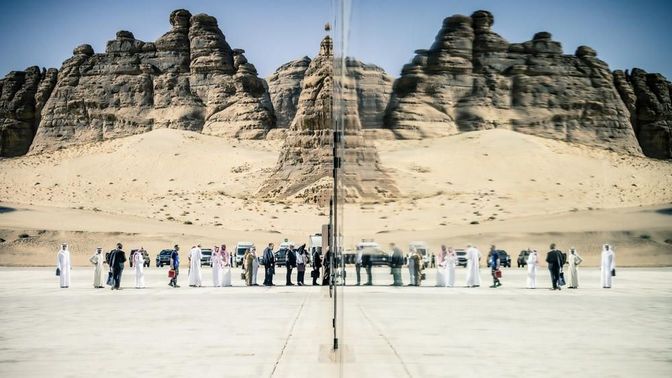

MSC organizes Workshop on Future of EU Foreign Policy
To accompany the Conference on the Future of Europe (CoFoE), the Munich Security Conference (MSC) hosted a workshop on coherence and unity in European foreign and security policy on November 3, 2021. The Secretary of State for European Affairs of Portugal, Ana Paula Zacarias, and Mika Aaltola, Director of the Finnish Institute for European Affairs (FIIA), gave input statements. After opening remarks by Elmar Brok, MSC Senior Advisor for European Affairs, Guy Verhofstadt, Co-Chair of the Conference on the Future of Europe, gave an overview of the current state of the CoFoE. Dr Julian Voje, Head of Policy at the MSC, moderated the event.
On November 3, 2021, the MSC hosted a digital workshop focusing on the topic of strengthening "Coherence and Unity in European Foreign Policy" to accompany the Conference on the Future of Europe (CoFoE). Designed as a small, confidential format, the workshop brought together a group of high-ranking representatives from EU institutions and governments as well as senior experts from academia and think tanks from across Europe. After introductory remarks by Elmar Brok, MSC Senior Advisor and long-time Chairman of the Committee on Foreign Affairs of the European Parliament (AFET), Guy Verhofstadt, Member of the European Parliament and Co-Chair of the Conference on the Future of Europe, gave an overview of the aims and the current status of the CoFoE. Dr. Julian Voje, Head of Policy at the MSC, moderated the event. After the keynote speeches by the Portuguese Secretary of State for European Affairs, Ana Paula Zacarias, and the Director of the Finnish think tank FIIA, Mika Aaltola, the Director of the Polish Institute of International Affairs, Sławomir Dębski, and Nicole Koenig, Deputy Director of the Jacques Delors Centre in Berlin, opened the discussion.
In light of the multiple challenges that the EU faces in a rapidly changing security environment, the participants highlighted the need for a stronger international role of the European Union. Several panelists emphasized that the EU already has strong foreign policy instruments and structures at its disposal but that the political will of the member states to make use of them is missing often.
Qualified Majority Voting as solution?
In this context, the value of introducing qualified majority voting (QMV) was controversially discussed. While some participants saw the unanimity requirement in EU foreign and security policy decisions as the key obstacle to an effective European foreign and security policy, others argued that the added value of QMV is limited and the likelihood of implementation low. Rather than focusing on QMV, some panelists proposed to make greater use of the existing possibilities of the Treaties, such as constructive abstention or Article 44 TEU, according to which the implementation of a mission can be entrusted to a group of EU member states.
Other proposals to strengthen EU foreign policy and to promote coherence between EU member states as well as between EU institutions and member states included, inter alia, the regular exchange between the defense ministers of the EU and the deepening of cooperation between the European External Action Service (EEAS) and the member states. Additionally, the introduction of an annual review process of the Strategic Compass was discussed. This process should be carried out with the broad participation of the public as well as the European Parliament and should be linked to the Multiannual Financial Framework (MFF).
With regard to the EU's instruments and capabilities, the participants called to further combine and integrate the EU's internal and external policy instruments, for example in digital and environmental policy. Another proposal referred to a more targeted use and better communication of the EU's soft power strengths, for example in development cooperation.
Second Workshop on the Future of EU Foreign Policy in December
Several panelists highlighted that the Conference on the Future of Europe can provide an important impetus for the Union, including in the field of foreign and security policy. With the workshops on EU foreign policy, the MSC contributes to this impulse and foster the debate on how to strengthen the EU's international role (Weltpolitikfähigkeit). For December, a second MSC Workshop on EU Foreign Policy is planned. The key results of both workshops will be uploaded to the CoFoE digital platform and can be further discussed by the broader public on the platform.
The workshops are part of the MSC Global Order program that aims to promote the debate on the international system, global governance mechanisms, and systemic competition.



